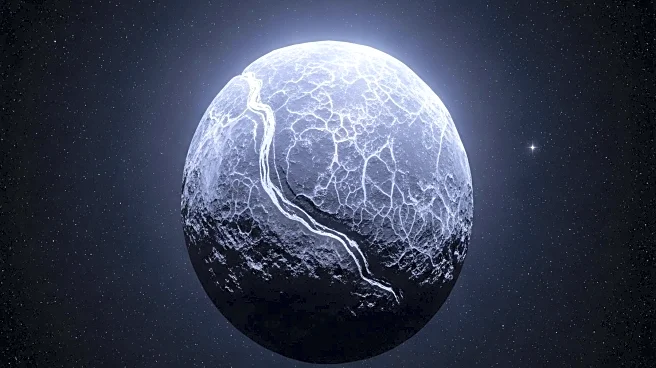What is the story about?
What's Happening?
Recent analysis of samples from asteroid Ryugu suggests that it once had liquid water flowing through it in significant volumes. The samples, collected by Japan's Hayabusa 2 spacecraft, indicate that Ryugu may have played a role in delivering water to Earth. Initial dating of the samples suggested Ryugu was one of the oldest objects in the solar system, but further analysis revealed that the asteroid was warmed enough to turn ice into liquid water about a billion years after its formation. This discovery challenges previous assumptions about the asteroid's composition and its potential contribution to Earth's water supply.
Why It's Important?
The findings from Ryugu provide new insights into the origins of Earth's water, suggesting that asteroids may have delivered more water than previously thought. This has implications for understanding the formation of planets and the potential for life elsewhere in the solar system. The research highlights the importance of sample return missions in uncovering the history and composition of celestial bodies. The discovery also underscores the need for continued exploration and study of asteroids to better understand their role in planetary development.
Beyond the Headlines
The study of Ryugu's samples offers a glimpse into the complex processes that shape celestial bodies and their potential impact on planetary systems. The presence of liquid water on asteroids raises questions about the conditions necessary for life and the possibility of similar processes occurring on other planets. This research contributes to the broader field of astrobiology and the search for extraterrestrial life, emphasizing the interconnectedness of cosmic events and their influence on planetary environments.

















